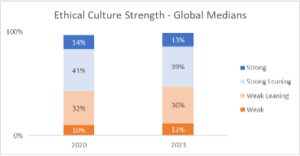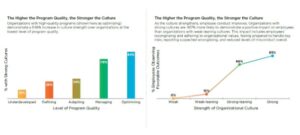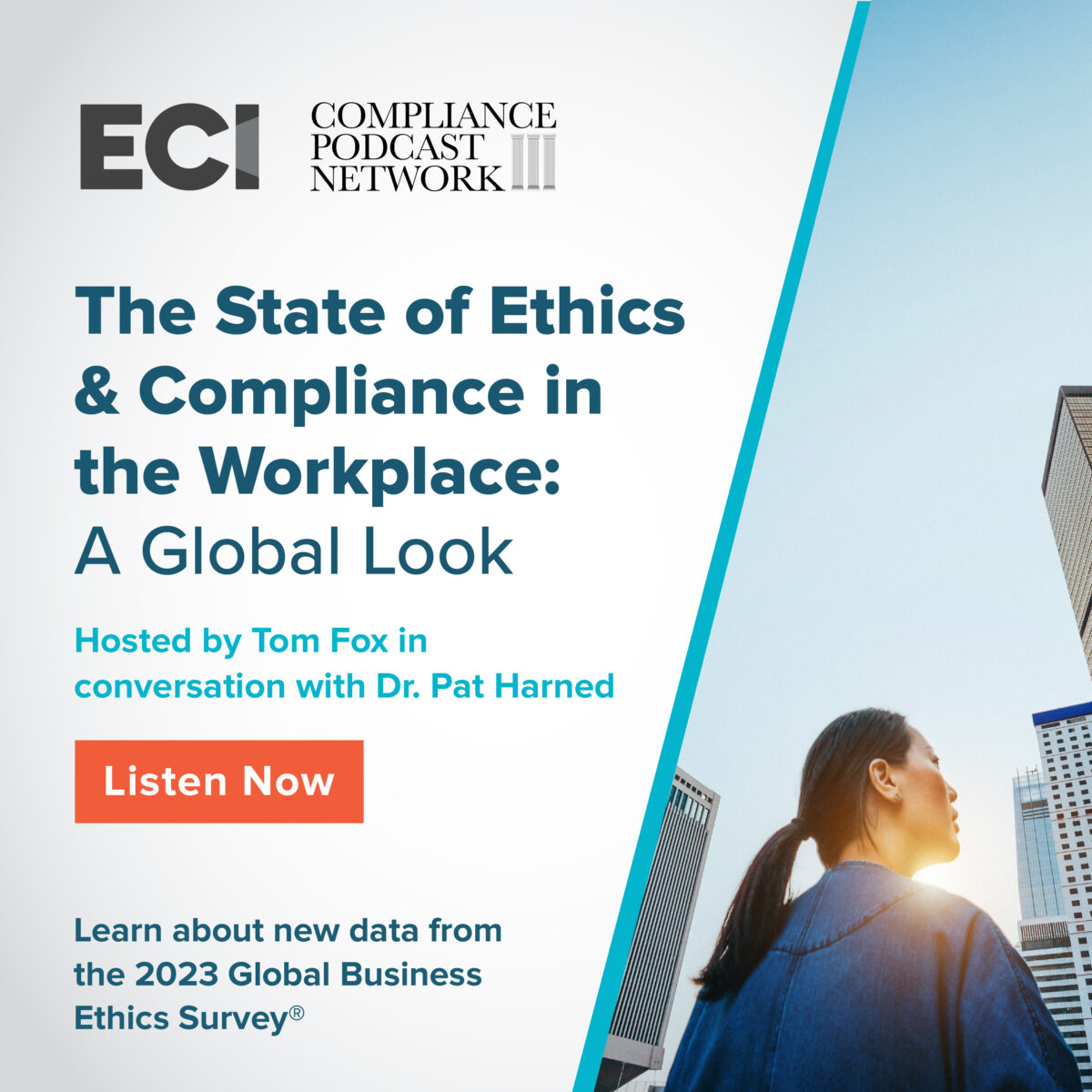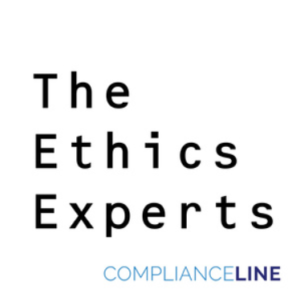In a recent ECI podcast series, I had the opportunity to visit with Pat Harned, CEO of ECI. We took a deep dive into the 2023 Global Business Ethics Survey (GBES), which revealed concerning trends in workplace ethics. The survey highlighted increased employee pressure, misconduct, and retaliation against whistleblowers. These findings underscore the need for organizations to implement robust ethics and compliance programs, including formal anti-retaliation measures. In Part 4 of this blog post in this series, we consider the importance of implementing a strong ethical culture in an organization.
Pat strongly advocates for the establishment of a robust ethical culture in businesses, a perspective shaped by their extensive experience in the field, including their significant role in conducting the 2023 GBES. Harned’s insights reveal that many employees do not operate within a strong ethical culture, and they stress the need for businesses to not only meet minimum standards but also strive for high-quality programs that transform company culture and operations. Harned believes that leaders should model ethical behavior and actively promote program activities that positively influence conduct and minimize the risk of non-compliance.
Two of the key findings from the GBES revealed that only 13% of employees believe they work in a strong ethical environment, indicating a pressing concern in today’s business landscape.
Key Finding: 5 – Few employees say they work in a strong ethical culture.
One of the key findings was that businesses are not taking the necessary steps to reduce their risk significantly. The survey found that only 30% of companies globally have implemented foundational elements of an ethics and compliance program. This lack of focus on ethics is alarming, as organizations with high-quality programs are more likely to have a strong ethical culture and positively impact conduct.

Building a strong ethical culture requires prioritizing key components of a high-quality program. These components include setting clear standards, providing training, establishing reporting systems, and ensuring consistent discipline for violations. By implementing these elements, organizations can foster a culture where employees believe that ethical standards matter and feel comfortable reporting wrongdoing.
However, achieving a strong ethical culture is not without its challenges. Balancing different factors and tradeoffs is necessary. For example, organizations must find a balance between setting clear standards and allowing flexibility for innovation and growth. They must also consider the impact of their decisions on stakeholders, including employees, customers, and the wider community.
Key Finding: 6 – Businesses are not taking the steps that are proven to reduce their risk significantly.
We also saw surprising findings regarding the countries with the highest and lowest percentages of employees working in ethical, solid cultures. Egypt and Colombia were listed as the countries with the highest percentages, while Japan and South Korea were at the bottom. This highlights the complexity of ethical culture, as it is not solely determined by cultural mores but also by trust in leaders and the extent to which employees feel welcome to voice concerns.

To address weaknesses and improve ethical culture, organizations can utilize the findings from the survey. The ECI report provides metrics that can help compliance professionals identify areas for improvement and address weak points in their programs. By focusing on the behaviors of top managers and supervisors, modeling expected conduct, and creating an environment where employees feel comfortable raising concerns, organizations can strengthen their ethical culture.
The episode also emphasized the importance of a high-quality program effort, as defined by the ECI. Organizations that go above and beyond the minimum standards and truly transform their culture are 546% more likely to have a strong ethical culture and 467% more likely to impact conduct and reduce the risk of non-compliance positively. The ECI has outlined key components of a high-quality program, including clear standards, training, helpline reports, leadership engagement, and consistent discipline.
In conclusion, the importance of implementing a strong ethical culture in businesses cannot be overstated. The findings from the Global Business Ethics Survey highlight the need for organizations to prioritize ethics and compliance programs. By focusing on key components of a high-quality program and addressing weaknesses, organizations can foster a culture where ethical standards are valued, misconduct is reported, and risk is significantly reduced. Achieving a strong ethical culture requires a careful balance of different factors and a commitment to continuous improvement.
To access the 2023 GBES report and obtain more information about ECI, interested individuals can visit the organization’s website at www.ethics.org. The report provides a summary of the findings, while an interactive website allows users to explore the data in more detail.
Join us in our concluding Part 5, where we discuss how a compliance professional can use this information in their corporate compliance program.
For more information, check out the ECI podcast series with Pat Harned discussing the GBES here.







